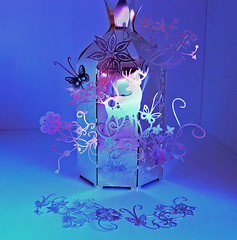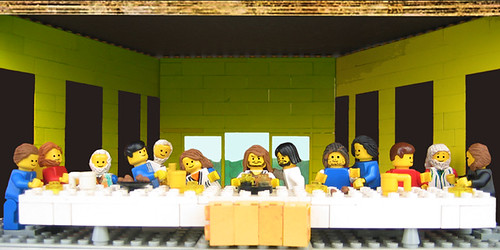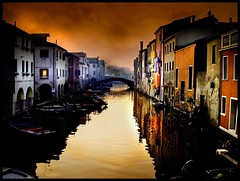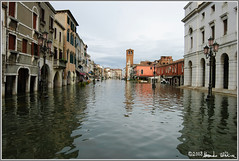First stepsIn spite of some initial problems, I really enjoy having this blog. This is a creative and pleasant way to practice languages using different registers
Anyway, I think that interaction is the most precious thing it can offer to me, because I would like to improve a sort of written production which implies the negotiation of contents and ideas.
Moreover, the chance to choose topics (nearly always :) and to comment others’ posts makes me feel more stimulated and spontaneous.
I hope to succeed in putting something interesting to you guys, I'm looking forward to read your opinions!;)
Prima o poi se fa anca le sucche!" (Sooner or later, even pumpkins mature!)This is a typical Venetian expression, it means that you don't have to give up hope and to keep on trying, making mistakes again and again. (It plays with the double meaning of pumpkins and maturity). It's something I thought, to take heart, during the latest class, when I found I still make mistakes with some English phrasal verbs and constructions.
For this reason, my main learning target to achieve thanks to this blog is the improvement of my writing skill. My weakest points are:
· punctuation
· past tenses (even if I'm going to follow Sarah’s suggestion: present perfect doesn’t exist to me anymore)
· the order of many different elements in the same phrase
· sometimes, lexicon: in order to avoid repetitions, I use synonyms which are quite far from the meaning I want to express (once again, as Sarah told us)
This blog represents a good occasion to put me to the test and dispel my doubts, once and for all.
Work in progressDuring the past week I took the opportunity of working both on my listening and writing skills.
As regards the first one, I have to admit that it's something I put to test almost every day, as I usually watch some nice and easy television programmes like Roomraiders, Next and Made on MTV, trying not to read subtitles. Sometimes I understand strange things, I don t know if it's because of my language limits or because they do or talk about freaky things :)
The perfect occasion to test, on the other hand, my writing skills, was given by my boyfriend. He read my favourite book, The Monk by M. G. Lewis, and he enjoyed it very much, so I decided to print the degree thesis I did about it. I had not been reading it for a long time and I realized that I could have used better some tenses and constructions. I noticed for the first time some imperfections and I corrected them. I'm glad to know that these two years have been useful to me. (Ehm...I had to use present perfect..but I think I could do it in this context :P)
 Well..maybe I talked too much..let's dwell on Viva la Vida..I read the text carefully and I the first sensation I got was that it talks about Geroge W. Bush. There are many references which made me think it:
Well..maybe I talked too much..let's dwell on Viva la Vida..I read the text carefully and I the first sensation I got was that it talks about Geroge W. Bush. There are many references which made me think it:




















